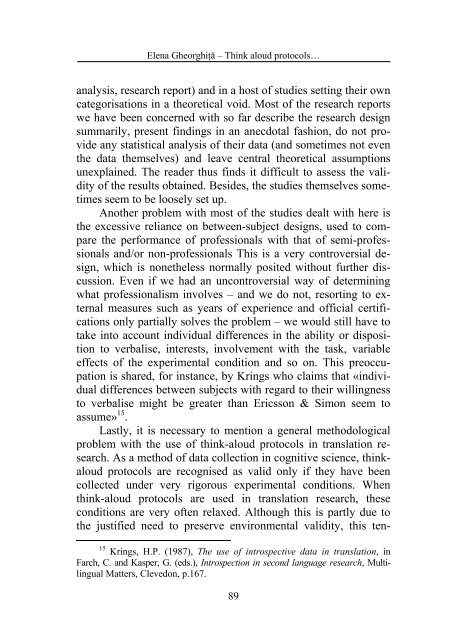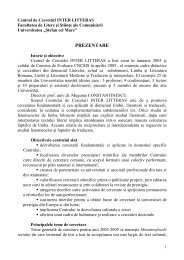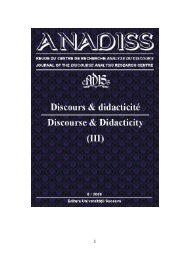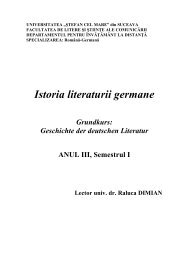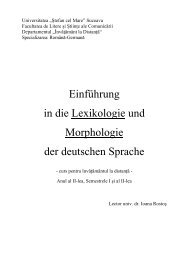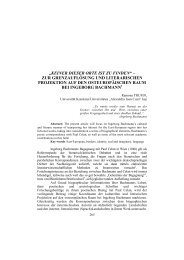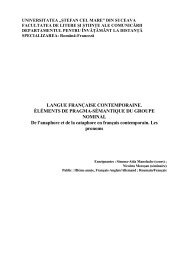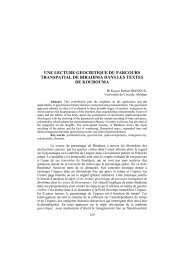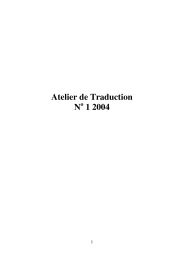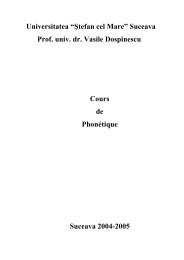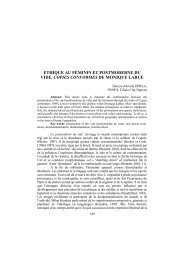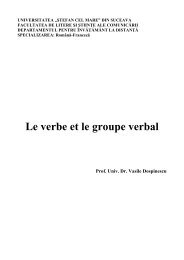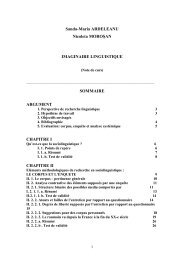Le discours de la francophonie
Le discours de la francophonie
Le discours de la francophonie
Create successful ePaper yourself
Turn your PDF publications into a flip-book with our unique Google optimized e-Paper software.
Elena Gheorghiţă – Think aloud protocols…analysis, research report) and in a host of studies setting their owncategorisations in a theoretical void. Most of the research reportswe have been concerned with so far <strong>de</strong>scribe the research <strong>de</strong>signsummarily, present findings in an anecdotal fashion, do not provi<strong>de</strong>any statistical analysis of their data (and sometimes not eventhe data themselves) and leave central theoretical assumptionsunexp<strong>la</strong>ined. The rea<strong>de</strong>r thus finds it difficult to assess the validityof the results obtained. Besi<strong>de</strong>s, the studies themselves sometimesseem to be loosely set up.Another problem with most of the studies <strong>de</strong>alt with here isthe excessive reliance on between-subject <strong>de</strong>signs, used to comparethe performance of professionals with that of semi-professionalsand/or non-professionals This is a very controversial <strong>de</strong>sign,which is nonetheless normally posited without further discussion.Even if we had an uncontroversial way of <strong>de</strong>terminingwhat professionalism involves – and we do not, resorting to externalmeasures such as years of experience and official certificationsonly partially solves the problem – we would still have totake into account individual differences in the ability or dispositionto verbalise, interests, involvement with the task, variableeffects of the experimental condition and so on. This preoccupationis shared, for instance, by Krings who c<strong>la</strong>ims that «individualdifferences between subjects with regard to their willingnessto verbalise might be greater than Ericsson & Simon seem toassume» 15 .Lastly, it is necessary to mention a general methodologicalproblem with the use of think-aloud protocols in trans<strong>la</strong>tion research.As a method of data collection in cognitive science, thinkaloudprotocols are recognised as valid only if they have beencollected un<strong>de</strong>r very rigorous experimental conditions. Whenthink-aloud protocols are used in trans<strong>la</strong>tion research, theseconditions are very often re<strong>la</strong>xed. Although this is partly due tothe justified need to preserve environmental validity, this ten-15 Krings, H.P. (1987), The use of introspective data in trans<strong>la</strong>tion, inFarch, C. and Kasper, G. (eds.), Introspection in second <strong>la</strong>nguage research, MultilingualMatters, Clevedon, p.167.89


